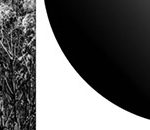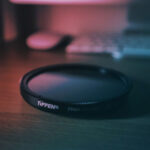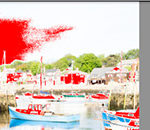Have you been noticing that the portraits you shoot in the shade just don’t look quite right? Maybe part of the image looks like the right color temperature, but other parts look too cool? If so, you’re probably noticing how using a flash in the shade can result in color temperature mismatches in your portraits, something that can be very time-consuming to fix in post-processing. Luckily, photographer Robert Hall has an easy solution—one that effortlessly balances out your color temperatures and can potentially save you hours of time in front of the computer:
Getting the right color balance in camera can really make a difference, especially when correcting in post-processing would be far too time-costly. This is particularly true when shooting in partial or full shade with a flash, as the color temperature between shade and full sun is substantial and flash products are balanced for daylight, not shade. And while increasing the white balance in camera can help, it will often add in unwanted color to the whites in your photo.

Increasing the white balance can help even out the color of the shadows, but will add unwanted color to the whites.
Hall’s creative solution to this is to add a half Color Temperature Blue (CTB) gel to his flash unit. This matches the color of your flash to the ambient light of shade. Then, when you increase the white balance you’ll have the same flash effect you’d have as if shooting in full daylight.
How does it work?
The CTB balances the color from the shade and shifts the color coming from the sun. Unlike blue effect gels, Color Temperature Blue modifies the Kelvin to a bluer color without affecting the tint. (If you use Color Temperature Orange, will get the opposite effect, balancing out indoor tungsten lighting.)

Using a half CTB gel on the flash unit.
Of course, you can always correct the color in post-processing, and correcting the ambient background is pretty simple. But once you move to correcting the mixed color temperatures on the subject, you’ll be moving into the world of complex masking and brushwork – something that can be very time consuming. And if you’re working with a large number of images, using a gel will make things infinitely faster.
One thing that many photographers have a question about, however, is why someone would want to put a blue gel on a scene they want to warm up. The answer is that the CTB does, in fact, cool the flash that lights the subject. That’s why you can only get the intended effect by increasing the white balance (increasing the Kelvin). In the video, Hall increases the Kelvin to about 7140.

Raising the White Balance in partial shade evens out the color temperature on the subject’s face while creating a nice, warming effect in the background.
How about you? Have you tried fixing this color temperature mismatch with gels? Or maybe you have another way of doing it? Let us know.
Like This Article?
Don't Miss The Next One!
Join over 100,000 photographers of all experience levels who receive our free photography tips and articles to stay current:






Leave a Reply